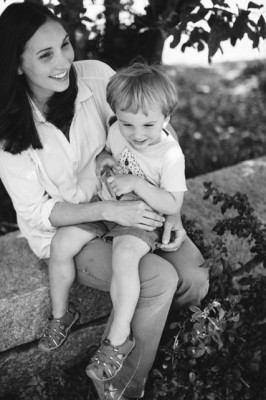 Melissa Florer-Bixler is licensed for ministry in Virginia Mennonite Conference, although she currently serves the people of Duke Memorial United Methodist Church in Durham, North Carolina, as Minister of Nurture. She parents three small children with her husband, Jacob. They worship as a family at Chapel Hill Mennonite Fellowship. Melissa is active in a group working to found a new L’Arche community in Durham.
Melissa Florer-Bixler is licensed for ministry in Virginia Mennonite Conference, although she currently serves the people of Duke Memorial United Methodist Church in Durham, North Carolina, as Minister of Nurture. She parents three small children with her husband, Jacob. They worship as a family at Chapel Hill Mennonite Fellowship. Melissa is active in a group working to found a new L’Arche community in Durham.
I’m standing next to one of my theology professors and he is laughing.
I’ve run into him at a protest against House Bill 2 in downtown Raleigh, North Carolina.HB2 is sometimes referred to as “the bathroom bill.” Its swift passage in the dead of night with only hours of advanced notice and debate has landed my state on the national news cycle.
The most public aspect of the bill is that it requires people to use the bathroom that corresponds with the sex listed on their birth certificate. This has created a painful and embarrassing situation for transgender and gender-fluid persons in North Carolina.
Buried beneath the bathroom legislation, HB2 expands its reach.It removes the possibility of suing for discrimination in a state court on the basis of race, religion, national origin, biological sex or handicap. Additionally, the state legislature has taken away the ability for cities to set their own minimum wage requirements for private employers.
It’s a mess. It’s a mess for LGBTQI persons, for the poor and marginalized, for women, the disabled, people of color and anyone who faces discrimination in our state.
But right now my professor is laughing. I don’t think he can help it. There’s an infectious joy around us, a joy emanating from the people who are gathered here. As I take in his hoots and howls, looking around at all the people, I can see that this is the place where God’s love is enacted.
A new kind of family is forming, strangers standing up for one another, religious  people and those who have never stepped foot in a church or mosque or synagogue – people connected by anger but also drawn together by love. We’re here because of love.
people and those who have never stepped foot in a church or mosque or synagogue – people connected by anger but also drawn together by love. We’re here because of love.
This is what love looks like in public space, what it looks like to be in love with your neighbors. The chants and songs are a love poem for strangers and friends.
When I hear the belly laughs beside me I imagine it is God’s laughter.
God delights in this strange family, people from different ethnicities and races, from every religion, people who don’t fit in, who are left at the margins, those whose fragile bodies are put on display by politics, who cross borders and boundaries.
God delights in old friends finding one another in the crowd, in teachers and students linked arm in arm, in parents introducing children to new people, new friendships, a new kind of politics.
Jesus loved crowds. They always seemed to find their way to him. They came out in anger over political repression, the subjugation and humiliation of their bodies by Rome. They came to be healed of their despair. They came for love. As I look around I wonder if it felt like this in the crowds that gathered on the hillsides and by the seashore.
I wonder if it felt like stickers and face paint, like mamas wearing their babies and grandmas with their walkers, black preachers in collars and Mennonite pastors with signs, strangers sharing bottles of water and granola bars, like singing and dancing, like shouts and like laughter.
I wonder if it felt like this. I wonder if it felt like love.


